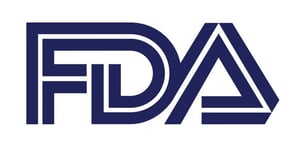
ECRI Cautions against CMS Blanket Coverage for FDA-designated Breakthrough Devices
 In September 2020, the Centers for Medicare and Medicaid Services proposed a rule that would establish a Medicare coverage pathway to provide Medicare beneficiaries nationwide with faster access to new, innovative medical devices designated as breakthrough by the Food and Drug Administration (FDA). After the final rule is effective, the Medicare Coverage of Innovative Technology (MCIT) pathway would begin national Medicare coverage on the date of FDA market authorization and would continue for 4 years. Following is an excerpt of ECRI’s submitted public comment.
In September 2020, the Centers for Medicare and Medicaid Services proposed a rule that would establish a Medicare coverage pathway to provide Medicare beneficiaries nationwide with faster access to new, innovative medical devices designated as breakthrough by the Food and Drug Administration (FDA). After the final rule is effective, the Medicare Coverage of Innovative Technology (MCIT) pathway would begin national Medicare coverage on the date of FDA market authorization and would continue for 4 years. Following is an excerpt of ECRI’s submitted public comment.
ECRI, an independent, nonprofit patient safety and health services research organization, offers the following commentary on the Medicare Coverage of Innovative Technology (MCIT) proposal that would provide national Medicare coverage on the same day as Food and Drug Administration (FDA) market authorization for all breakthrough devices. Such coverage would last for four years. CMS asserts that this new coverage pathway would offer beneficiaries nationwide predictable access to new, breakthrough devices to help improve their health outcomes.
ECRI has assessed the safety and efficacy of medical devices for more than 50 years. ECRI believes that providing Medicare coverage for all devices designated as “Breakthrough” the same day as FDA authorization will
- pose a patient safety and efficacy risk to Medicare beneficiaries in some cases
- lower the safety and efficacy evidence requirements used for making coverage decisions
- disincent the conduct of additional trials focusing on important patient-oriented outcomes in the Medicare population, especially prospective controlled trials
Executive Order 13890, issued by the White House on October 3, 2019, called for streamlining processes for bringing innovative products to market. It specifically called for regulations and guidance to minimize the time and steps between decisions by FDA for approval and the Centers for Medicare and Medicaid Services (CMS) for coverage. It called for evaluation of the parallel FDA and CMS review process with intent to overcome current challenges in use of that process.
The MCIT proposal for same-day decisions on “Breakthrough” devices asserts that this new coverage pathway would offer beneficiaries nationwide predictable access to new, breakthrough devices to help improve their health outcomes. ECRI cautions that such a blanket coverage approach is not in the best interest of patient care and safety, and instead, advocates for the two options that are already in place for early access to new devices: the Parallel Review Process and Coverage with Evidence Development. These tools were developed and implemented to afford Medicare beneficiaries early access to novel technology while also keeping efficacy and patient safety foremost in mind. These vehicles help to ensure that evidence will be gathered on key patient-oriented outcomes so that when new devices diffuse into clinical care, clinicians and patients have a good idea of the potential risks and benefits.
Sixteen devices have received the breakthrough designation. However, not all breakthrough devices are intended for use primarily in the Medicare population. Thus, clinical trials on breakthrough devices not intended primarily for use in the Medicare population typically include few or no patients covered by Medicare, such as the over-65 and disabled populations. (Read ECRI’s full response for 3 examples of breakthrough devices that illustrate our concerns about why Medicare should not automatically cover all breakthrough medical devices on the day of FDA approval.)
Even when trials on breakthrough devices do include some data on patients aged 65 and older or disabled populations, the available data at the time of FDA approval or clearance is often sparse, relatively short-term, and significant evidence gaps remain. FDA’s regulatory evidence requirements to support device approval or clearance often differ from and are much narrower in scope than the evidence sought by health technology assessment organizations and payors to determine how well a device/procedure works in a given population and how it compares to the standard of care.
Once approved by FDA and covered by Medicare, manufacturers have little incentive to fund controlled studies that will address key evidence gaps on patient-oriented outcomes. FDA has tried to balance early access and the need for more evidence by requiring postmarket studies; however those studies typically do not address key questions that can be answered only by controlled trials. Furthermore, patients are likely to assume that if a device is FDA-approved AND covered by Medicare, sufficient evidence of safety and effectiveness exists for its use in them. In contrast, trials conducted under Coverage with Evidence Development are required to obtain informed consent and to study “whether the item or service meaningfully improves health outcomes of affected beneficiaries who are represented by the enrolled subjects.”
In conclusion, ECRI urges CMS not to implement the proposed rule as it stands. If coverage at the time of FDA approval is desired for a breakthrough device, CMS should ensure that sufficient evidence on benefits and risks is available for the Medicare population or use the two vehicles already available to enable early access to Medicare beneficiaries.
Read ECRI’s full public comment here. If you would like to share your questions or concerns regarding this issue, please send them to communications@ecri.org.
